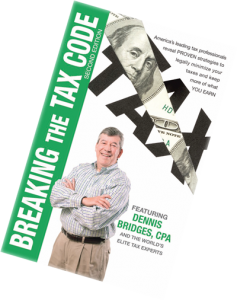
Article Highlights:
- Primarily Business
- Primarily Vacation
- Special Circumstances
- Foreign Conventions, Seminars and Meetings
- Cruise Ships
- Spousal Travel Expenses
Note: effective for years 2018 through 2025, the Tax Cuts and Jobs Act of 2017 suspended the deduction of miscellaneous itemized expenses that must be reduced by 2% of the taxpayer’s adjusted gross income. Employee business expenses, including travel expenses, fall into this category. Therefore, this discussion only applies to self-employed individuals for years 2018-2025.
When a self-employed individual makes a business trip outside of the U.S. and the trip is 100% devoted to business, all of the ordinary and necessary business travel expenses are deductible, just as if the business trip were within the U.S. On the other hand, if the trip also incorporates a vacation, special rules determine the deductibility of the travel expenses to and from the destination; when the other business travel expenses, such as lodging, meals, local travel and incidentals, can be deducted; and when they must be allocated. So, whether you are just visiting one of our neighboring countries or traveling to Europe or even more exotic locales, here are some travel tax pointers:
Primarily Vacation – If the travel is primarily for vacation and only a few hours are spent attending professional seminars or meeting with foreign business colleagues, none of the expenses incurred in traveling to and from the general business location are deductible. Other travel expenses must be allocated on a day-by-day basis, and only the business portion is deductible.
Primarily Business – If the trip is primarily for business and meets one of the conditions listed below, the expenses incurred in traveling to and from the business destination are deductible in full (same as for travel within the U.S.).
- The travel outside the U.S. is for a period of one week or less (seven consecutive days, excluding the departure day but including the day of return). In addition, all other ordinary and necessary travel expenses are fully deductible.
- Less than 25% of the total time outside the U.S. is spent on non-business activities. In addition, all other ordinary and necessary travel expenses are fully deductible. (If 25% of more of the total time is spent on non-business activities, a day-by-day allocation of all travel expenses between personal and business activities is necessary and only the business portion is deductible.)
- The individual incurring the travel expenses can establish that a personal vacation or holiday was not a major consideration. In addition, all other ordinary and necessary travel expenses are fully deductible.
- The taxpayer did not have “substantial control” over arranging the trip. (For self-employed taxpayers, who would generally have substantial control over the trip arrangements, this provision likely won’t apply.) In addition, all other ordinary and necessary travel expenses are fully deductible.
When determining what constitutes business and non-business time, business days include: days en route to or from the business destination by a reasonably direct route without interruption; days when actual business is transacted; weekends or standby days that fall between business days; and days when business was to have been transacted but was canceled due to unforeseen circumstances.
Non-business days are days spent on non-business activities as well as weekends, holidays and other standby days that fall at the end of the business activity, if the taxpayer remains at the business destination for personal reasons.
Foreign Conventions, Seminars or Meetings – Tax law does not permit a deduction for travel expenses to attend a convention, seminar or similar meeting held outside of the North American area unless the taxpayer establishes that:
- The meeting is directly related to the active conduct of the taxpayer’s trade or business, and
- It is “as reasonable” for the meeting to be held outside of the North American area as it is within the North American area.
The IRS defines “North American area” quite broadly and includes not just the U.S., Canada and Mexico, as you would expect, but also Bermuda, several countries in the Caribbean basin, U.S. possessions such as American Samoa and other Pacific island nations, and some Central American countries as well.
Cruise Ship Conventions – In order for a taxpayer to deduct the cost of attending a convention related to his or her trade or business on a cruise ship, the ship must be a U.S. flagship, and all the ports of call must be within the U.S. or its possessions. In addition, the maximum deduction is limited to $2,000 per attendee. Substantiation requirements include certain signed statements by both the taxpayer and an officer of the convention sponsor.
Spousal* Travel Expenses – Generally, deductions are denied for travel expenses for a spouse, dependent or employee of the taxpayer on a business trip unless:
- The spouse is an employee of the taxpayer, and
- The travel of the spouse, etc., is for a bona fide business purpose, and
- The expenses would otherwise be a deductible business travel expense for the spouse.
*These rules also apply to a dependent or employee of the taxpayer.
Since a spouse, dependent or other individual who is an employee will be denied a deduction for business travel expenses in years 2018 through 2025, condition #3 can’t be met. This means that “spousal” travel expenses won’t be deductible for years 2018 through 2025.
However, the law allows a deduction for the single rate for lodging on qualified business trips, and frequently, there is no rate difference between one and two occupants. Thus, virtually the entire lodging expense for an accompanying spouse will be deductible. When traveling by car, the law does not require any allocation because the spouse is also traveling in the vehicle. Thus, if traveling by vehicle, the entire cost of the business-related transportation would be deductible. This would generally also apply to taxis at the destination.
As you can see, determining the tax deduction for a foreign business trip of a self-employed individual that is combined with a vacation can be complicated. If you need additional tax guidance or help planning such a trip, please give this office a call.




















